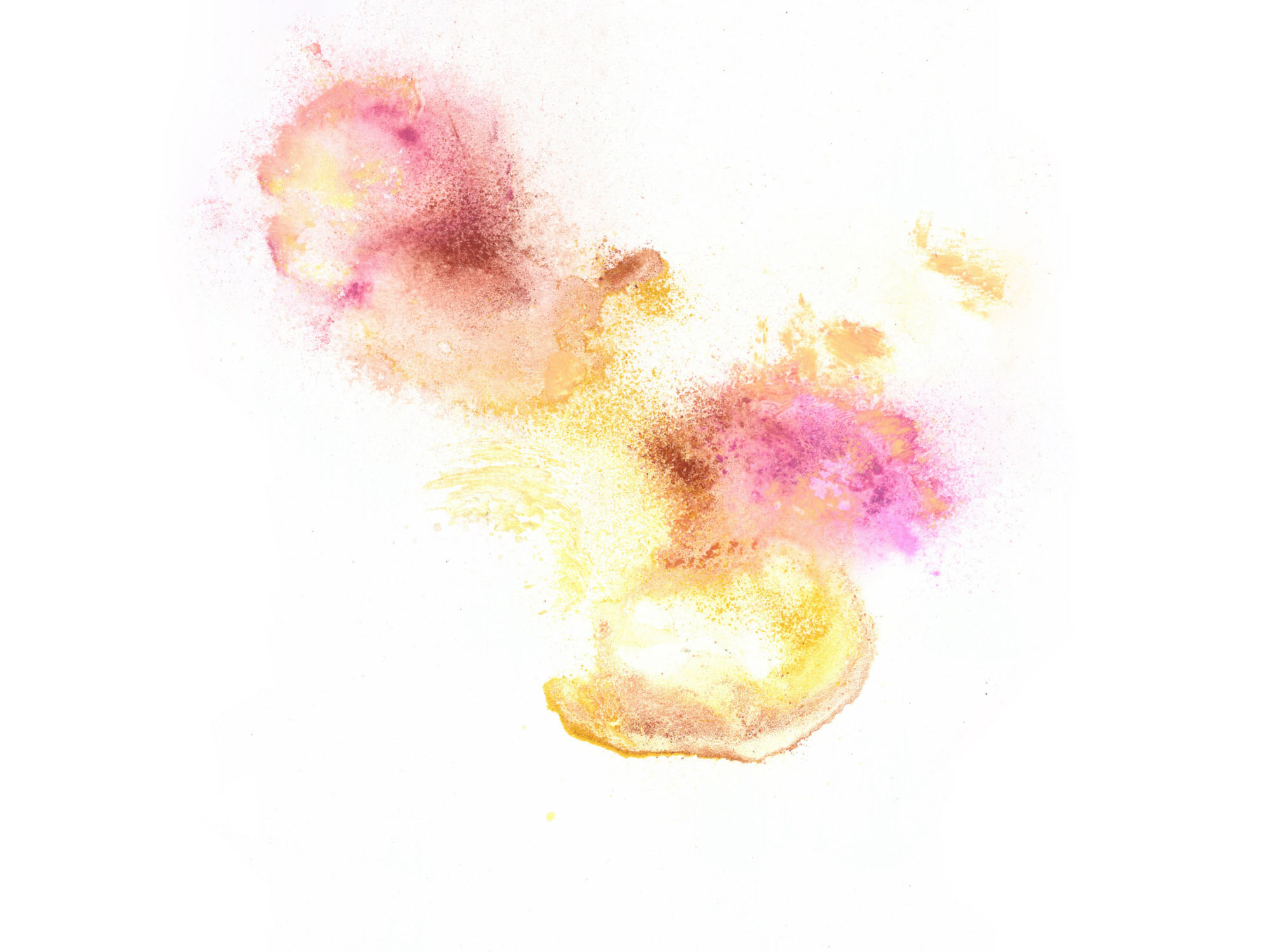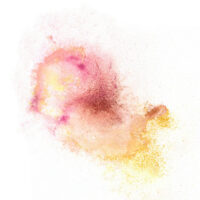Interview with Georg Soldner on his experiences with the prolonged states of debilitation after Covid and glandular fever. Wolfgang Held asked the questions.

Where are we now with the coronavirus disease?
The severity of the disease is now comparable to other viral diseases, although coronavirus infections, as well as coronavirus vaccinations, run the risk of leaving us debilitated for a long time. We know this from other viruses as well. The best known is glandular fever or mononucleosis: the Epstein-Barr virus. These are viruses that have the property of triggering long-lasting debilitating states—a long virus syndrome—wherein a person’s own behaviour actually promotes the long-lasting course of disease. It is worth asking how we should behave in order to reduce the likelihood of a long course of coronavirus disease.
It isn’t an accident then, whether or not a person displays long Covid symptoms?
There are always a multitude of factors in diseases. I have been involved with long-term consequences in viral diseases for 35 years and I believe I can describe the pattern that makes a long-lasting coronavirus disease more probable. Coronavirus seems to me to be a disease that we could learn to adopt a respectful relationship towards.
First of all, it is important to notice symptoms: sore throat, exhaustion, feeling of fatigue and then—with the help of diagnostics—to determine the disease. If it is an Epstein-Barr or a corona virus, I would immediately stop my daily work and refrain from my obligations. The point is not to push the disease away but to engage with it, and to detach ourself from all the usual occupational and social obligations. Rest is the most important thing! This is because these long virus syndromes disproportionately affect people with a high level of willingness to perform: people who are overactive, for example competitive athletes, or people with high professional ambition and a sense of duty.
As a doctor, I know this is the high-risk group. The disease challenges this performance ethic: “As long as I can still walk, I’ll keep working. I’m self-employed and have to finish the job, etc. …” You have to overcome the “superego” here and be able to say to yourself, “But now I’m ill and I have to respect that, just as I can’t walk with a broken leg.” The second thing is that, from the beginning, we should set ourselves a period of time in which we let our activities rest. In general, I now recommend seven to ten days for coronavirus and four weeks for Epstein-Barr virus.
So don’t show up on deck again when there are signs of recovery?
It is important that our body is promised this from the beginning—that we do not check from day to day, asking when we will finally be able to start work again, but promise ourselves this time off work. That’s how I did it myself with my two cases of the coronavirus disease. After ten days I was fitter than before. The point is that on the first day I say, “I’ll be gone for ten days!” and don’t re-evaluate it every day. Our organism works out of anticipation. What I anticipate has a strong influence on my recovery processes. If I know that there will be ten days of rest, then I can go deep. Then the healing processes can unfold.
That sounds unusual.
Yes. It is unusual, even among doctors. The second thing is: we should be very cautious with the conventional medical suppression of pain and fever. Ibuprofen and paracetamol have no place in the treatment of this disease. Pain treatment with nature-based medicines is possible but these antipyretics and analgesics lead to an obstruction of the organism’s acute reaction which, like a swinging pendulum, in turn triggers a nocturnal recovery phase of the organism. If I get drunk during the day, to choose a drastic comparison, then the night will not proceed in terms of healthy recovery and I will wake up with a hangover. I would not refuse a painkiller to a patient in severe pain. If we intensively treat them with Arnica, for example, and suitable external applications, and rest with the upper part of the body elevated, we almost always manage without painkillers in the case of Covid or glandular fever.
What else can be done?
The third thing is to nurture the generative processes. What do I do when the acute symptoms have passed and I am still supposed to rest? “Every illness is a consultation with God,” says Michaela Glöckler. Indeed, it is an opportunity to orientate oneself. How do I relate to my biography? I have observed that many people who are afflicted with long virus symptoms have set themselves performance goals that are beyond what they can achieve. They are barely if ever satisfied with themselves.
You could say this affects everyone, but it’s not quite like that. Thus it can be helpful to clarify my inner relationship with my parents as authorities. Are my goals really “my” goals? What have I adopted as identification even though it does not belong to my identity? This is about detaching from adopted performance ideals. An older female patient with severe glandular fever once said to me: “I had two stronger brothers and a father for whom only men counted. I always had to be better than them.” A classic story. This woman was able to find a completely new path to herself through her illness.
Are these diseases a chance to break out of this performance corset?
Yes. To do that I have to hold myself back, and that is the highest activity of the I. In every meditation I hold back the normal progress of the day in favour of my inner spiritual activity. It’s interesting that Covid is appearing now, when we are inclined to become ever faster and more effective. Too little thought has been given to the proper attitude towards the disease and what we can learn from it, and there has been too little information about it.
The word “clinic” has the Greek origin “klínein”: to incline, to bend.
Quite right. A typical story: A 61-year-old patient had Covid and told me that he had to continue working for another two days. I strongly advised him not to. He had problems for three months afterwards. His wife, who followed the rules outlined here, was fit again after ten days. These are things we need to inform people about.
A new pathogen has come into the world that has the property of triggering chronic functional disorders if we do not take our behavior into account. Of course, physical disposition also plays a role, but we should not underestimate our own behavior. At the same time, we are in a better position to treat these viral diseases with Anthroposophic Medicine than with conventional medicine, because our treatment strengthens the I and its immune system at all levels and does not weaken it by suppressing symptoms.
Today everyone knows the consequences of lack of exercise or tobacco consumption. That’s at the material level. Now we are talking about the causes of illness at the level of the soul?
And the spirit! If I express it anthroposophically: where the astral body has directed out of the way in which upbringing and society have shaped it, there, leadership of the I must now occur. Not my father, not my employer, but my “I” should lead my astral body and give my life its own rhythm and the configuration that suits my personality. The astral body is always faster than the I. We have to learn to “contain” and guide the astral plane from the I. Here it is worthwhile to distinguish between psyche and spirit. If a captain steers his ship in a storm according to his mood, he will likely not survive the storm. He must direct the ship from his spirit, beyond his emotions and fears. We should navigate no differently through disease.
The generative growth of the plant ends with the flower. There, the astral holds back the etheric. Is this principle repeated at a higher level?
Yes, we can understand each higher level as holding back and transforming the one below. In every schooling path we enhance that. So, when I practice a piano piece, I first slow down the playing—I hold back, I slow down the pace so that my I becomes present in the action, and in that way I strengthen the leadership of the I.
Is this the first time you’ve encountered this, with coronavirus?
I worked on it in the context of the Epstein-Barr virus. I know people who did not regain their full strength for a year, or even descended into chronic weakness after an infection. I noticed that the people concerned had something in common: a strong tendency for performance, a feeling in life that their own commitment was still lacking. It is important to remove the patient from this spiral so that healing can take place.
A student at the top of her class— her high school graduation class—got glandular fever. I insisted that she not attend school for four weeks and not study. That way she could recover. She then took her final exams and got top marks. If we give space to the illness, we can be revitalized by it. What do you really want in life? That is the question. We should free ourselves from external performance ideals. Some have internalized the idea that people only like them if they excel. There are a lot of father issues involved. It’s not about just letting go but coming to yourself.
We have spoken of adverse dispositions. This does not allow the patient to draw conclusions about the circumstances of their life, does it?
My concern here is to provide clarification. Long Covid can occur for various reasons. I have talked about one aspect here—there are also quite different ones. I would like to underline that explicitly. On the other hand, I would like to explain how we can act preventatively in the case of such viral diseases and what we can learn in a positive sense during the time of the illness. That can also help to remove anxiety.
Each of us wants to be as capable tomorrow as we were yesterday. For this precise reason, we must be ready to hear the call of the disease that is addressed to us. I have gotten into the habit of being clear with my patients about such viral diseases because it is not something that is intuitive for them. Diseases can enhance our development if we understand them.
Translation Christian von Arnim
Illustration Gilda Bartel





